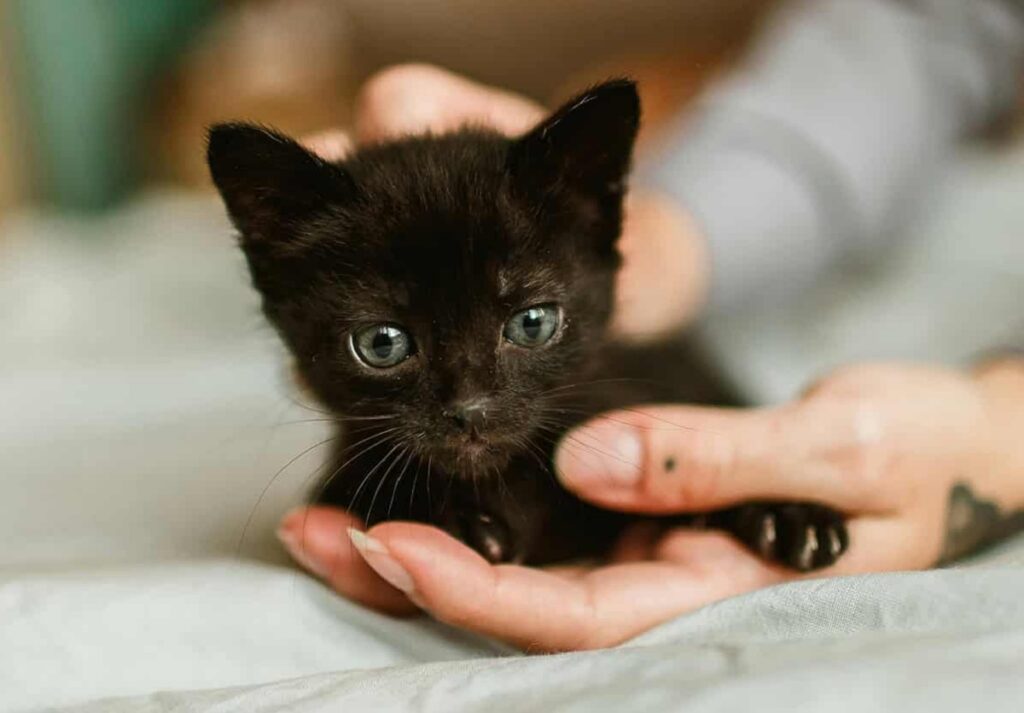Black cats have always been surrounded by mystery, myths, and superstitions. Some believe they bring bad luck, while others see them as symbols of good fortune. But when it comes to black female cats, a common question arises: Are they rare? Let’s break down the facts behind black cat genetics, gender ratios, and adoption trends to find the truth.
Understanding Black Cats and Their Genetics
Black fur in cats is caused by a genetic trait that produces a high level of melanin. This dominant gene, known as the B allele, determines whether a cat has black fur. However, genetics are complex, and black cats don’t always stay black. Some may develop a reddish or brownish tint due to sun exposure or age.
But does gender play a role in coat color? Unlike calico and tortoiseshell cats, which are primarily female due to their X-linked genetic traits, black cats do not have their coat color tied to gender. This means that black fur can appear in both male and female cats equally.
Are Female Black Cats Less Common Than Males?
Now, let’s tackle the main question—are female black cats rarer than males? The simple answer is not really. Since black coat color is determined by a dominant gene that isn’t tied to sex chromosomes, black cats can be both male and female in roughly equal numbers.
However, studies suggest that male cats slightly outnumber females in the general cat population. This is because male cats are biologically more likely to survive birth at a slightly higher rate than females. But this small difference does not mean black female cats are extremely rare—it just means there might be slightly more black males than black females.
Myths and Superstitions About Black Cats
Black cats have been misunderstood for centuries. Some cultures see them as symbols of bad luck (especially in Western countries), while others believe they bring wealth and good fortune (such as in Japan and the UK).
- In medieval Europe, black cats were associated with witches and dark magic. People believed that witches could transform into black cats, leading to their persecution.
- In Japan and Britain, black cats are actually seen as lucky. Owning a black cat is thought to bring prosperity and protect the household from evil spirits.
- In Egypt, black cats were worshipped, and harming one was considered a terrible crime.
Unfortunately, due to these superstitions, black cats—especially in shelters—tend to be adopted less frequently. Some people even avoid them due to old myths, making it harder for them to find homes.
Adoption and Popularity of Black Cats
One major issue black cats face is what’s known as Black Cat Syndrome. This means black cats are less likely to be adopted than cats of other colors, largely because of superstition, myths, and even photography bias (black cats are harder to photograph for social media).
However, in recent years, black cats have gained popularity, thanks to:
- Social media campaigns promoting black cat adoption.
- Halloween and pop culture references (e.g., Salem from Sabrina the Teenage Witch).
- Growing awareness about their affectionate and loving nature.
So, while black cats might have faced discrimination in the past, they are slowly winning hearts and finding more loving homes.
How to Care for a Black Female Cat
If you have a black female cat or are thinking of adopting one, here are some essential tips to keep her healthy and happy:
1. Grooming Tips for a Glossy Coat
- Brush your cat regularly to remove loose fur and prevent matting.
- A healthy diet rich in omega-3 fatty acids can keep her coat shiny.
- Avoid excessive sun exposure, as black fur can fade to brownish hues.
2. Health Considerations
- Black cats do not have specific health problems related to their coat color.
- However, like all cats, they need regular check-ups to monitor for issues like obesity, dental problems, or kidney disease.
3. Safety Precautions
- Black cats can be harder to see at night, making them more prone to accidents. If your cat goes outdoors, consider using a reflective collar.
- Keeping your black cat indoors can also protect her from potential harm, especially around Halloween when superstitions still exist.
Conclusion
So, are black female cats rare? Not really. While male cats slightly outnumber females in general, black female cats are not significantly rarer than other coat colors. The misconception likely comes from myths and superstitions rather than real genetic differences.
Despite facing challenges with adoption due to old beliefs, black cats are just as loving, playful, and affectionate as any other cat. If you’re considering bringing one home, you’ll be getting a unique and beautiful companion who deserves just as much love as any other feline.
FAQs
1. Are black female cats really rare?
No, black female cats are not rare. Black fur is determined by a dominant gene that appears in both male and female cats.
2. What makes black cats unique?
Black cats have a high level of melanin, which gives them their sleek coat and striking golden or green eyes.
3. Do black cats have different personalities?
Not necessarily! A cat’s personality is shaped by breed, environment, and individual temperament, not just coat color.
4. Why are black cats associated with bad luck?
This myth stems from medieval Europe when black cats were linked to witches and superstitions. In some cultures, however, they are seen as good luck.
5. How can I adopt a black female cat?
You can check local shelters, rescues, and adoption events. Black cats often have a harder time getting adopted, so you’ll be giving a deserving cat a loving home!

